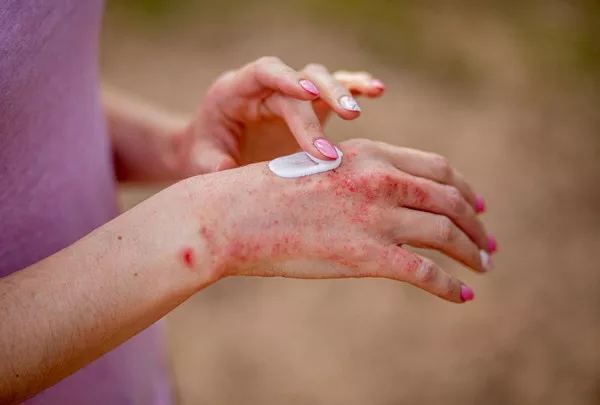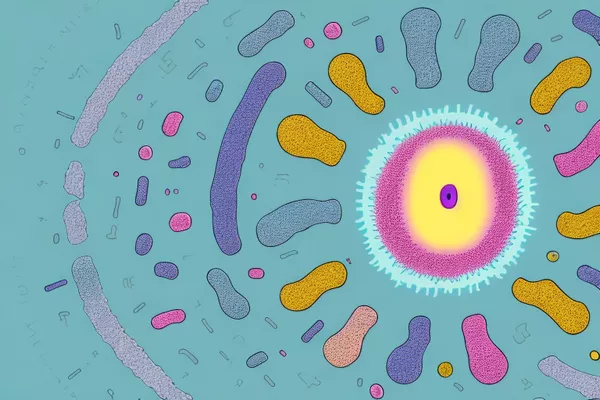Eczema is a common skin condition that can affect different areas of the body, including the hands. When eczema appears on the hands, it can be particularly troublesome due to the hands’ frequent use and exposure to various irritants. The skin may become dry, itchy, red, cracked, or inflamed, making everyday tasks difficult. Fortunately, there are several ways to help manage and treat eczema on the hands. This article explores some effective methods and tips for dealing with eczema on your hands.
Understanding Eczema on Hands
Eczema, also known as atopic dermatitis, is a condition where the skin becomes inflamed and irritated. It is a chronic condition that flares up and then improves over time. Eczema can be triggered by various factors, such as allergens, irritants, genetics, and environmental conditions.
When eczema affects the hands, the skin often becomes dry and cracked, which can lead to pain, itching, and inflammation. Scratching the affected areas can worsen the condition, leading to more severe flare-ups. For those with eczema on the hands, managing the condition is important to reduce discomfort and prevent long-term damage to the skin.
Moisturize Your Hands Frequently
One of the most important steps in managing eczema on your hands is to keep the skin well-moisturized. Dry skin is a major trigger for eczema flare-ups. Regular moisturizing helps to lock in moisture, soothe irritated skin, and prevent cracking and itching.
Choose a thick, fragrance-free moisturizer designed for sensitive skin. Products with ceramides, hyaluronic acid, and glycerin are ideal because they help repair the skin barrier and keep the skin hydrated for longer periods. Apply moisturizer several times throughout the day, especially after washing your hands, when the skin is still slightly damp, to lock in moisture.
Consider using an emollient or ointment-based moisturizer at night. These products are thicker and more occlusive, providing a longer-lasting barrier against moisture loss.
Avoid Harsh Soaps and Detergents
One of the main irritants for people with eczema is harsh soaps and detergents. These products can strip away the natural oils from your skin, leaving it dry and more prone to irritation. When you have eczema on your hands, it’s important to choose mild, fragrance-free soaps and detergents.
Look for products labeled as “gentle,” “for sensitive skin,” or “soap-free.” Avoid antibacterial soaps, as they can be overly drying. Instead of using traditional hand soap, consider using a liquid cleanser or a moisturizing bar soap designed for eczema-prone skin.
After washing your hands, always apply a moisturizer right away to help restore lost moisture.
Protect Your Hands from Irritants
Your hands come into contact with many different substances throughout the day, some of which can trigger eczema flare-ups. To help prevent irritation, it’s important to protect your hands from these irritants.
If you need to clean, wash dishes, or handle cleaning products, always wear gloves. Choose gloves made from cotton-lined rubber or nitrile, as latex gloves can sometimes cause allergic reactions in sensitive individuals. Wearing gloves helps protect your skin from harsh chemicals and prevents moisture loss.
If you have to use water frequently, make sure to apply a thick layer of moisturizer before wearing gloves. This will help lock in moisture and protect your skin from the drying effects of water and soap.
Use Wet Wrap Therapy
Wet wrap therapy is a treatment that can help soothe and hydrate the skin during eczema flare-ups. It involves applying a moisturizer to the affected areas, followed by wet bandages or cloths, which are then covered with a dry layer. This helps trap moisture in the skin and enhances the effectiveness of moisturizers and topical treatments.
To try wet wrap therapy for eczema on your hands, start by washing your hands with a gentle, non-irritating cleanser. Pat your hands dry, then apply a thick layer of moisturizer or prescription topical treatment to the affected areas. After moisturizing, dampen a clean cloth or bandage with lukewarm water and wrap it around your hands. Over this, wrap a dry bandage or cloth to hold the wet one in place. Leave the wraps on for a few hours or overnight.
This method can be particularly helpful for calming severe eczema flare-ups and deeply hydrating the skin.
Use Topical Treatments and Medications
In some cases, over-the-counter or prescription medications may be needed to help control eczema flare-ups on the hands. The most commonly used treatments include corticosteroid creams, topical calcineurin inhibitors, and antihistamines.
Corticosteroid creams: These are the most commonly prescribed treatment for eczema. They help reduce inflammation and relieve itching. However, prolonged use of corticosteroids can cause thinning of the skin, so it’s important to use them as directed by your healthcare provider.
Topical calcineurin inhibitors: These are non-steroidal medications that can help reduce inflammation and prevent flare-ups. They are often used in sensitive areas of the skin, such as the hands or face, where corticosteroids might be too harsh.
Antihistamines: These can help reduce itching and are often used in conjunction with other eczema treatments. They are available over the counter or by prescription.
It’s important to consult a healthcare professional before using any prescription or over-the-counter treatments, as some medications may not be suitable for long-term use.
Manage Stress
Stress is a known trigger for eczema flare-ups, and people with eczema on their hands may notice their symptoms worsen during stressful periods. Reducing stress can have a positive effect on eczema and improve overall skin health.
Consider incorporating stress-reducing practices into your daily routine, such as deep breathing exercises, yoga, meditation, or regular physical activity. These activities can help lower stress levels and improve your overall well-being.
Additionally, getting enough sleep and maintaining a balanced diet can contribute to better skin health and help manage eczema symptoms.
Avoid Scratching
One of the most difficult aspects of living with eczema is the constant itching. However, scratching can make the condition worse by causing more irritation, leading to further damage to the skin and increasing the risk of infection.
To reduce the urge to scratch, try using cold compresses or applying a soothing anti-itch cream. Keep your nails trimmed short to prevent further damage to your skin if you do scratch. Additionally, consider wearing cotton gloves at night to prevent scratching while you sleep.
If you find it difficult to resist scratching, speak with your doctor about additional treatment options to control the itching.
Consider Dietary Changes
While the connection between diet and eczema is not fully understood, some people with eczema find that certain foods can trigger flare-ups. Common food triggers for eczema include dairy products, gluten, nuts, eggs, and certain fruits and vegetables.
Keeping a food diary can help you identify any foods that may be contributing to your eczema symptoms. If you suspect that a certain food is triggering your flare-ups, try eliminating it from your diet for a few weeks to see if your symptoms improve.
In addition to eliminating potential food triggers, consider incorporating more anti-inflammatory foods into your diet, such as omega-3 rich fish (like salmon and sardines), leafy greens, nuts, and seeds. These foods may help reduce inflammation and improve overall skin health.
When to See a Doctor
If your eczema on the hands doesn’t improve with home treatments or if your symptoms become severe, it’s important to see a healthcare provider. A doctor can help diagnose your condition, rule out other potential causes, and recommend appropriate treatments.
In some cases, more advanced treatments, such as phototherapy or systemic medications, may be needed to control eczema. Your doctor will work with you to develop a treatment plan tailored to your specific needs.
Conclusion
Eczema on the hands can be a frustrating condition, but with the right approach, it can be managed effectively. By moisturizing regularly, avoiding irritants, using protective gloves, and trying different treatments, you can help reduce flare-ups and keep your skin healthy. Remember to stay consistent with your skincare routine and work closely with your healthcare provider to find the best treatment plan for you.
Managing eczema is a long-term process, but with patience and the right strategies, you can reduce its impact on your daily life and improve the health of your skin.
Related topics


























